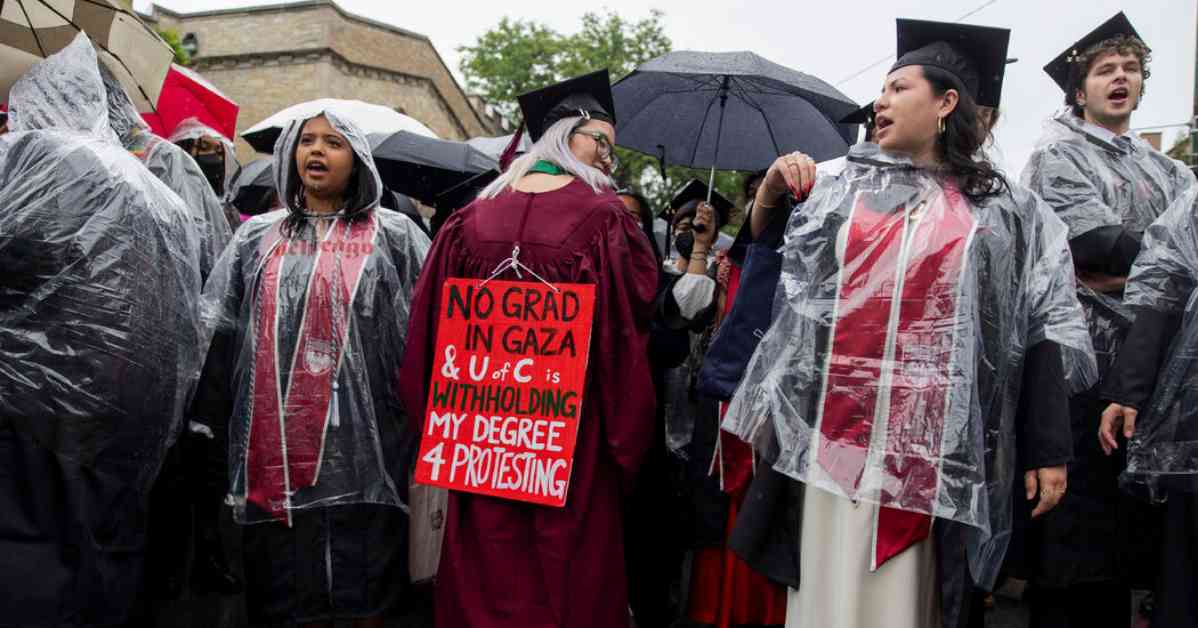The Debate Over Student Protest Charges: Should They Be Dropped?
The issue of student protest charges has been a hot topic of debate in recent years, with students across the country facing disciplinary action for their involvement in various demonstrations. From pro-Palestinian protests to calls for divestment from certain entities, students have been at the forefront of activism on college campuses.
One such student, Youssef Hasweh, found himself in a precarious position when the University of Chicago withheld his degree due to his participation in a protest encampment on campus. Despite being allowed to participate in graduation ceremonies, his academic future remains uncertain as the university decides how to discipline him for breaking the institution’s code of conduct.
This situation is not unique to Mr. Hasweh, as many other students have found themselves in similar disciplinary limbo for their involvement in protests. The question of how universities should handle these cases is a complex one, with implications for freedom of speech, academic freedom, and student activism.
The History of Student Activism in Academia
Student activism has a long history in academia, with students playing a key role in social movements throughout the years. From the civil rights movement to protests against the Vietnam War, students have been at the forefront of advocating for change and challenging the status quo.
Many universities take pride in their history of student activism, viewing it as a reflection of their commitment to social justice and progressive values. Faculty members often encourage students to get involved in political issues and support their right to express dissenting opinions.
However, the landscape of student activism has shifted in recent years, with some students facing harsh disciplinary action for their involvement in protests. The question of how universities should balance the right to protest with the need to maintain order and uphold institutional values remains a contentious issue.
The Call for Charges to Be Dropped
One of the key demands of student protesters in recent years has been the dropping of all charges against them, both academic and legal. Many students argue that their actions were a form of legitimate protest and should not be met with punitive measures.
Some students have been charged with criminal misdemeanors, such as trespassing, while others have faced disciplinary action from their universities. The range of potential penalties can vary, from a warning on their records to suspension or expulsion.
The debate over whether charges should be dropped has sparked intense discussion among administrators, faculty, and students. While some argue that protesters should face consequences for violating rules and regulations, others believe that such actions are a necessary part of democratic discourse and should be protected.
In conclusion, the issue of student protest charges is a complex and multifaceted one that raises important questions about freedom of speech, academic freedom, and the role of universities in shaping the next generation of leaders. As students continue to push for change and challenge the status quo, it is essential for universities to find a balance between upholding their values and respecting the rights of their students to engage in activism.
